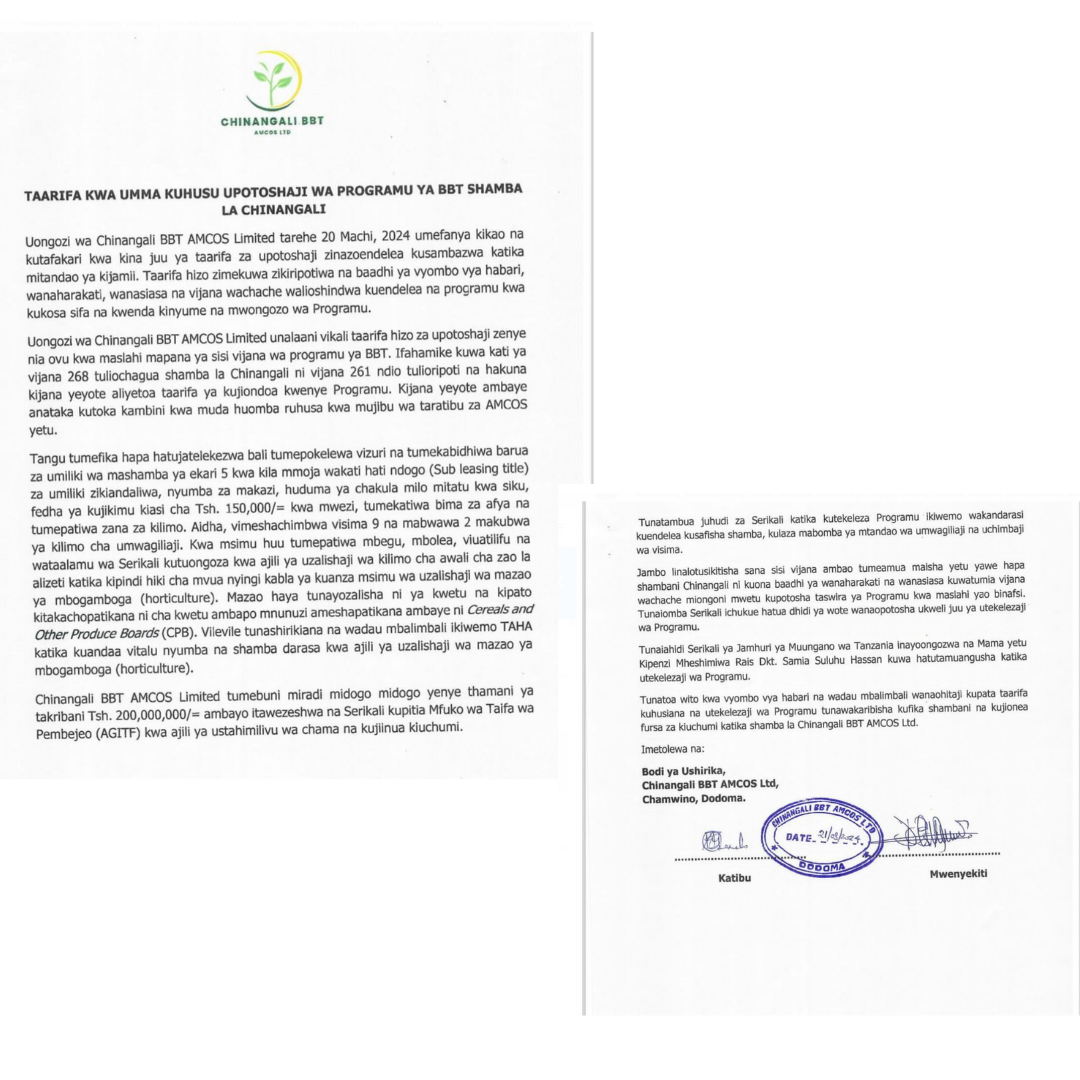#TZ2024/5 Agriculture Budget: Reforming Tanzania’s Cooperative Movements for Agricultural Growth
Kilimokwanza.org Team
Tanzania is undertaking significant reforms in its cooperative sector, aiming to enhance the commercial viability and management of its agricultural cooperatives. Highlighted in the recent budget speech by Hon. Hussein Mohamed Bashe, the Minister of Agriculture, these reforms are crucial for improving the efficiency and productivity of the agricultural sector, which is a cornerstone of the national economy.
In his presentation to Parliament for the 2024/2025 budget, Minister Bashe emphasized the government’s commitment to revitalizing agricultural cooperatives. “We are dedicated to reforming our cooperative movements to ensure they are more commercially viable and better managed,” Bashe stated. This initiative is part of a broader strategy to empower farmers and streamline agricultural operations through cooperative societies.
Reform Strategies: The reform process involves several key strategies:
- Regulatory Revisions: Updating the legal and regulatory frameworks governing cooperatives to ensure they are conducive to modern agricultural practices and business needs.
- Management Training: Enhancing the management capabilities of cooperative leaders through targeted training programs that focus on financial management, strategic planning, and modern agricultural techniques.
- Financial Support: Introducing new financing options for cooperatives, including grants, low-interest loans, and credit facilities to help them invest in technology, expand operations, and improve their services to members.
- Technology Adoption: Encouraging cooperatives to adopt modern technology, such as digital tools for farm management, supply chain logistics, and market access, to increase their operational efficiency.
Impact of Reforms: The anticipated impact of these reforms is multifaceted:
- Increased Productivity: By improving resource management and adopting modern technologies, cooperatives can enhance their members’ agricultural productivity.
- Market Expansion: Better-managed cooperatives are more capable of accessing broader markets, both domestically and internationally, thus increasing sales and profitability.
- Sustainability: With improved financial and operational management, cooperatives are more likely to be sustainable in the long term, providing stable support for their members.
Challenges and Outlook: Despite the potential benefits, the reform process faces challenges, including resistance to change within some cooperatives and the need for extensive capacity building. Overcoming these challenges will require continuous engagement with cooperative members and leaders, as well as support from international development partners.
The development and reform of cooperative movements in Tanzania represent a significant step towards enhancing the agricultural sector’s commercial viability and management. By focusing on regulatory improvements, management training, financial support, and technology adoption, Tanzania is laying a strong foundation for the future of its agricultural cooperatives. As these reforms unfold, they promise to bring about profound changes in how agriculture is practiced and managed across the nation, ultimately leading to improved livelihoods for countless farmers and their communities.


